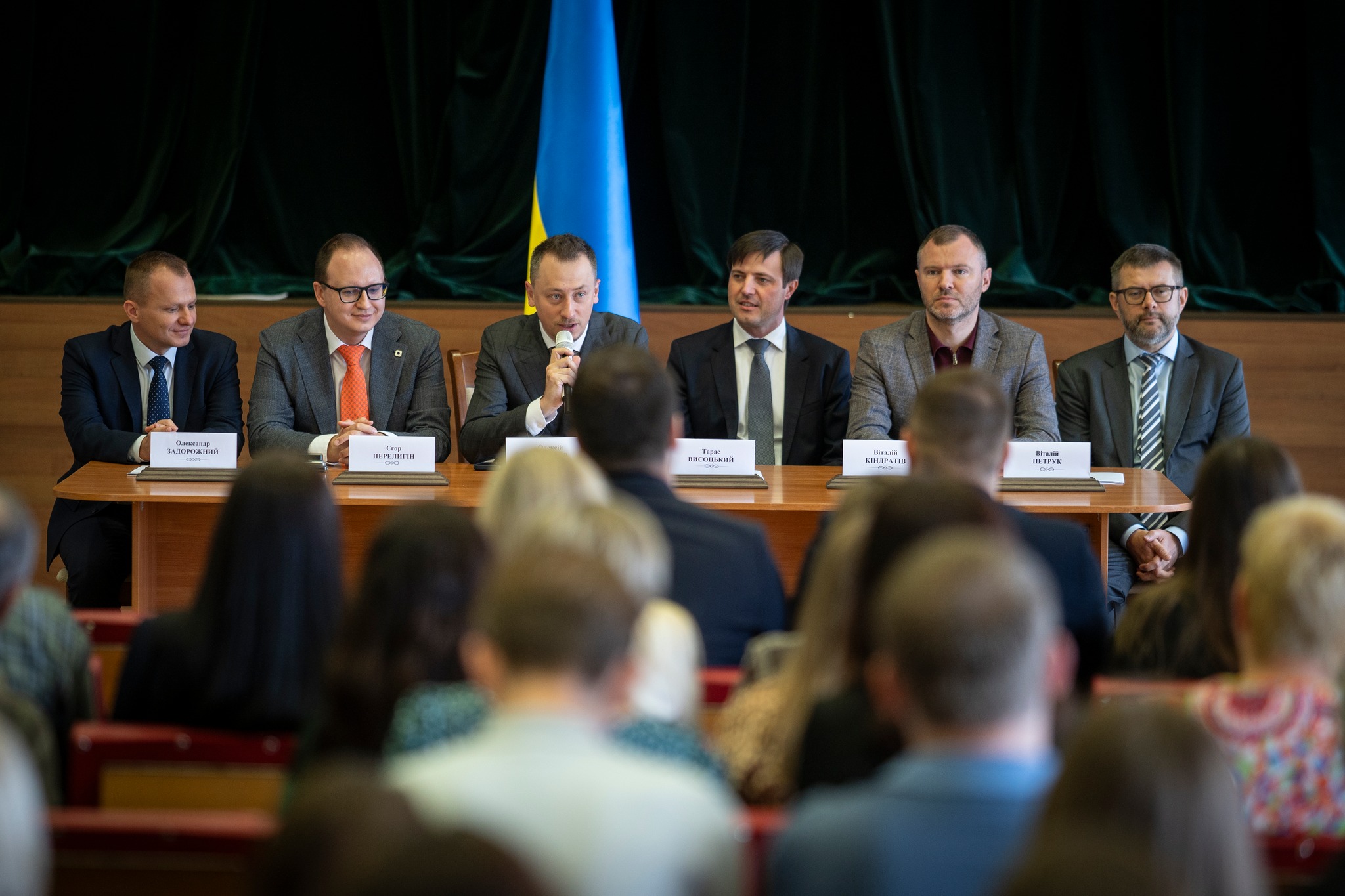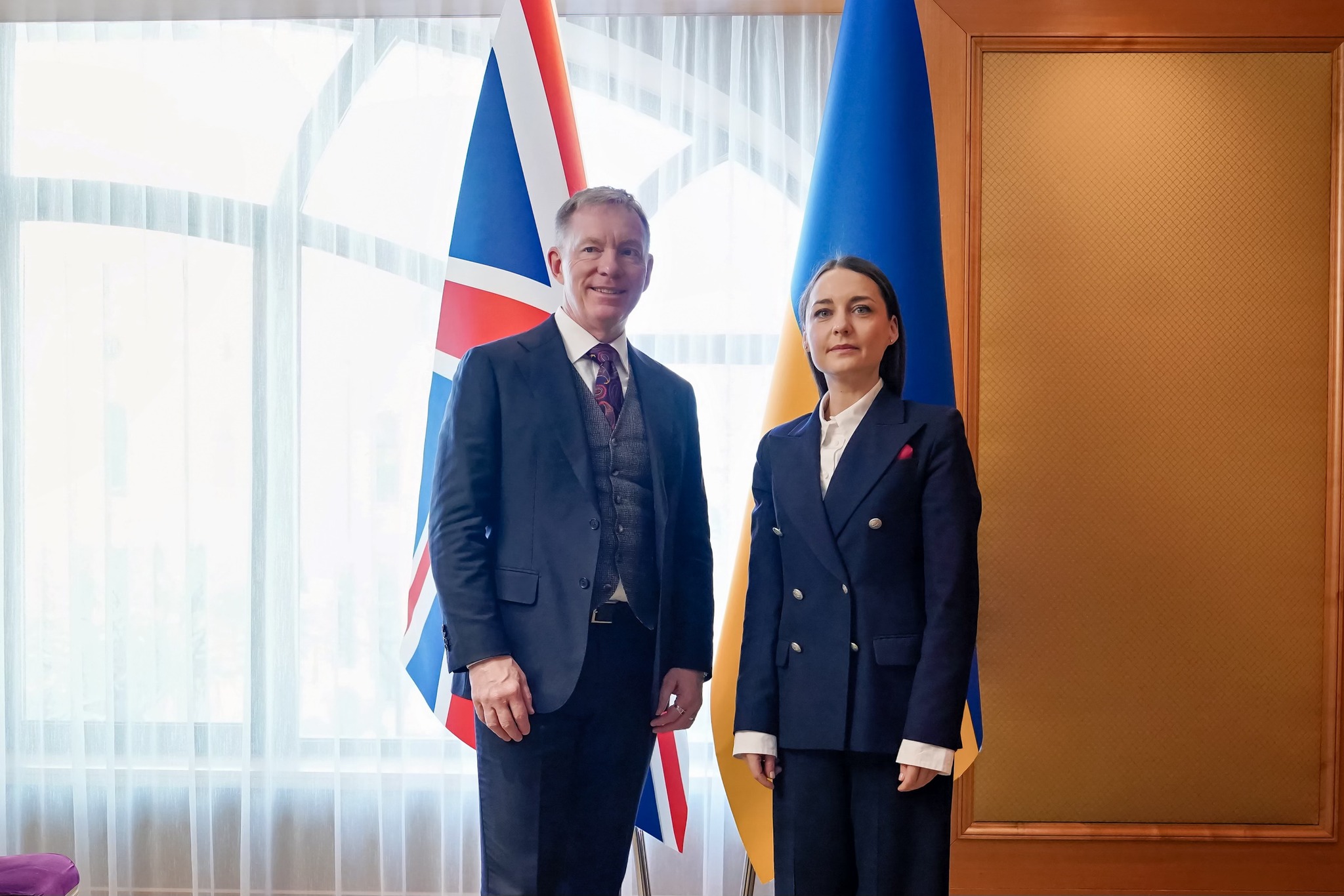Minister of Economy, Environment, and Agriculture of Ukraine, Oleksii Sobolev, met with the teams of the former Ministry of Agrarian Policy and Food and the Ministry of Environmental Protection and Natural Resources. These institutions are currently undergoing a merger with the Ministry of Economy into a single structure — the Ministry of Economy, Environment, and Agriculture.
During the meeting, the Minister outlined the key priorities of the newly created ministry in the areas of agrarian policy and environmental protection. He also introduced the deputy ministers who will oversee specific directions.
“We are merging to work faster and more efficiently. Decisions will now be made in one place, without unnecessary bureaucracy. But at the same time, this comes with great responsibility — we have become the largest ministry in the government, with a team of about 1,500 people. The President and Prime Minister of Ukraine have placed a great responsibility on us, so we must operate as a single organism,” said Oleksii Sobolev.
The Minister defined the following key priorities:
- European integration — The Ministry of Economy is responsible for harmonizing 40% of Ukrainian legislation with EU standards. This includes 15 out of 35 negotiation chapters.
- Expanding export markets for Ukrainian products, particularly agricultural.
- Irrigation and land reclamation, which are critically important for the southern regions, especially under climate change and war consequences.
- Continuation of land reform.
- Deregulation and attracting private capital and investment.
- Increasing production of value-added agricultural products.
- Attracting investment in “green” industrialization.
- Implementing waste recycling projects.
- Forest restoration and development of the timber market.
- Development of the sector of critical minerals and raw materials (CRMs).
- International cooperation in the extractive sector and interaction with the U.S.-Ukraine Reconstruction Investment Fund.
- Environmental Impact Assessments (EIA) and maintenance of the corresponding unified register.
- Digitalization of geological data, transition to modern standards of reserve/resource management, and development of geological exploration overall.
Oleksii Sobolev also introduced his deputies:
Taras Vysotskyi and Denys Bashlyk will coordinate agricultural policy.
Yehor Perelyhin and Vitalii Kindrativ will oversee environmental protection.
Responsibilities:
Taras Vysotskyi will handle:
- EU integration (Chapters 12 and 13),
- State support for crop production, livestock, horticulture,
- Policy on seed production,
- Agricultural logistics coordination,
- Support for alternative energy sources in agriculture,
- Agro-insurance programs,
- Water resource management, irrigation, and land reclamation.
Denys Bashlyk will handle:
- EU integration (Chapter 11),
- Development of rural areas,
- Land relations,
- Transfer of agrarian knowledge and innovations,
- Implementation of rural development programs,
- Securing support for the agrarian sector.
Yehor Perelyhin will focus on:
- Subsoil use policy and natural resources,
- Opening and digitalization of geological data,
- Development of critical minerals,
- Implementation of reindustrialization and resource resilience programs,
- International cooperation in the extractive industry,
- Coordination with the U.S.-Ukraine Reconstruction Investment Fund.
Vitalii Kindrativ will continue to oversee:
- Technical regulation, standardization, metrology,
- Development of industrial parks and large-scale investment projects,
- Economic policy in security and defense,
- State reserves and critical infrastructure protection.
His portfolio will also now include:
- Foreign economic policy and trade protection,
- Protection of national producers’ economic rights,
- Export control coordination,
- Environmental Impact Assessments (EIA) and maintaining the corresponding unified register.
The Minister emphasized that preserving experienced professionals and expert teams is one of the key tasks. Their knowledge and expertise will serve as the foundation for building an effective structure in the new ministry.





















